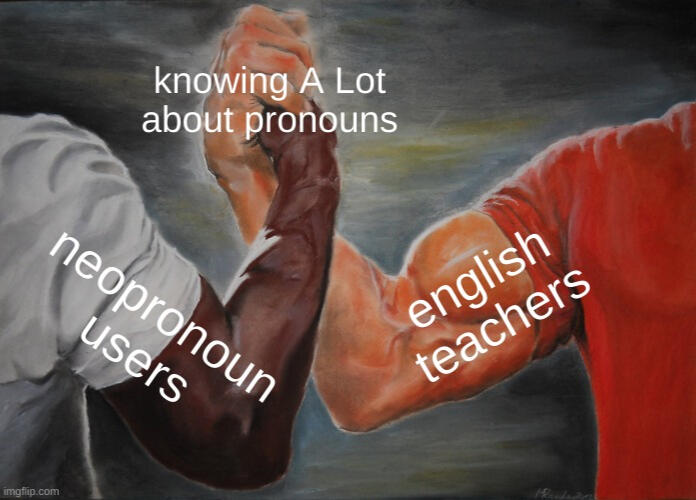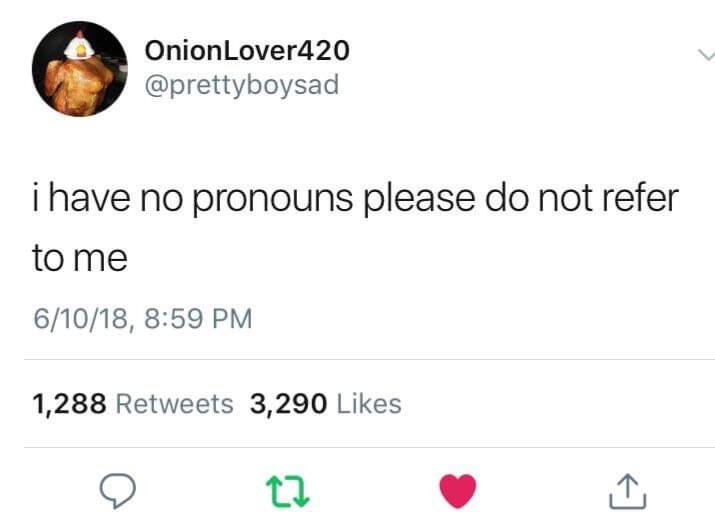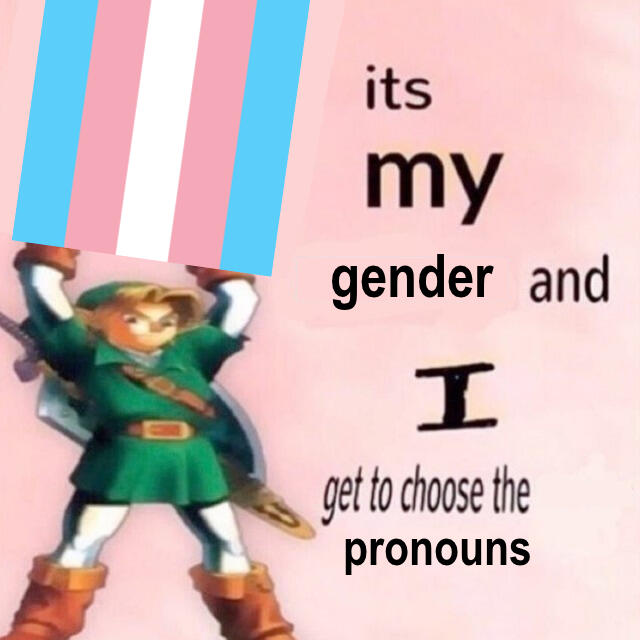What's a pronoun? Is it like being in favor of nouns in the English language?

A pronoun is a short word you use to replace a longer word in a sentence. So, without pronouns, you would have to say
"This morning, Isabelle went to the park. I went with Isabelle. And Isabelle brought Isabelle's frisbee. At least I think it was Isabelle's. By the end of the day, Isabelle began throwing the frisbee to Isabelle's self."
(it is also a pronoun to replace the word frisbee, but this carrd is made to highlight gendered pronouns. it/its can be used as pronouns for a person, but it is typically associated with objects.)
That's a bit clunky and repetitive, so if you wanted the sentences to sound smoother, you could use pronouns in place of Isabelle's name. Say Isabelle uses she/her pronouns. You could then say
"This morning, Isabelle went to the park. I went with her. And she brought her frisbee. At least I think it was hers. By the end of the day, Isabelle began throwing the frisbee to herself."
And that's easier to say, especially as sentences get longer, so pronouns are useful linguistic tools.
why do pronouns matter?
why do pronouns matter? it just sounds like a boring english class thing :/

in english, pronouns are gendered. That means if people hear certain pronouns, they tend to make assumptions about the person, such as their appearance, genitilia, personality, and especially gender. For example, hearing he/him pronouns will often make people think the person being referred to is a man. If the person is actually a woman, this assumption will likely make them feel uncomfortable; this is called gender dysphoria. Since the woman would want to avoid the dysphoria from people assuming their gender, they may want to use she/her pronouns so people will think of her as a woman instead of a man.
For people who fit inside the gender binary- 100% exclusively male or 100% exclusively female- pronouns are relatively simple. If someone wants to be perceived as a man, they will probably use he/him pronouns. If someone wants to be perceived as a woman, they will probably use she/her pronouns.
However, there are many people that exist outside of the male/female gender binary, who might use terms such as nonbinary, genderqueer, agender and more. Since nonbinary people may not to be called "he" or "she" and have people assume they are a man or a woman, because they're not, they may want to use other pronouns.
The most common pronoun for nonbinary people is they/them pronouns: i was talking to them, and they said they wanted to use they/them pronouns, so I'm going to respect their pronouns.
But those pronouns aren't for everyone!
why not just use they/them?

people's reasons for using a certain set of neopronouns are ultimately up to them, and people never owe you an explanation.That being said...
Like how he/him and she/her come with expectations and assumptions, they/them might as well. They/them can sometimes be used as plural, and people might want to avoid they/them in order to avoid the debate. Additionally, they/them can be associated with stereotypes about nonbinary people, and people might feel disconnected from that. They/them might also feel too neutral or ambigious to properly represent someone's gender. People whose first language isn't english, and whose first language doesn't have a singular they equivalent, or people with lisps/speech impediments may also want to avoid those pronouns. Sometimes, people just don't feel comfortable with they/them.
or sometimes, people don't feel like they/them is wrong for them, they just prefer other options. Their reasons vary- some prefer the way it sounds or feels, some want to express a part of their identity like xenogenders, culture, or interests, or they deliberately want to go against societal norms of gender.
for the above reasons and more, people might use pronouns beyond the typically he, she, or they. The most common alternative is xe/xem, with ze/hir, it/its, and fae/faer also being commonly used neopronouns. Sometimes, people turn nouns that they associate with into pronouns as well. For example, someone who likes bunnies or feels that their gender is connected to bunnies could use bun/bunself pronouns. These are called nounself pronouns. People can also turn emojis, such as ✨, into a pronoun, though these are typically not used offline.
Whatever pronouns someone uses, and whatever their reasons, they should be respected.
but i don't wanna respect neopronouns! they're stupid!

neopronouns make the trans community look stupid! you're the reason transphobes don't take us seriously.
Transphobia is the reason transphobes don't take us seriously. It doesn't matter how "weirdly" we're being trans, they don't want us to be trans at all. what they really want is for us to be cis and gender conforming, and if we go against that, we are going to be targets no matter how "normal" we try to act. so why not express ourselves how we like?
but neopronouns are made up!!!
Correct. Every word ever is made up. this is how language works.
did you know the pronouns we consider "normal" now haven't always been that way? old english used different sets of pronouns. so really, the he/she/they pronouns that are considered acceptable now were once new and made up as well.
it's just some stupid internet fad though!
actually, no. the oldest neopronoun that is still considered a neopronoun was coined in 1858, thon/thons. it's an abbreviation of "that one" and was in the dictionary for a few decades. i am fairly certain 1858 predates the internet.
however, even if neopronouns were more of a recent phenomenon, that doesn't invalidate them. just because the cornavirus vaccine hasn't been around very long doesn't mean we shouldn't get it. please get vaccinated, everyone.
they're too confusing :/
math is also very confusing. my teacher did not accept this as an excuse to call it a stupid internet fad.
pronouns are essentially mini-nouns, or mini-names, and sometimes names are difficult to keep track of as well. this does get easier with practice. however, if you make a real attempt to use someone's neopronouns and you genuinely cannot get the hang of them, most neopronoun users will be understanding. many have sort of "backup" pronouns for people who can't use their main set, or you can refer to them with just their name.
okay, got it!
thank you for taking the time to educate yourself! if you still want to learn more, you can scroll through or send a respectful ask to my blog. you can also look at this other carrd, and this one, this carrd about nounself pronouns, this list of neopronouns, this article, and this study.
drink some water and have a nice day! :)